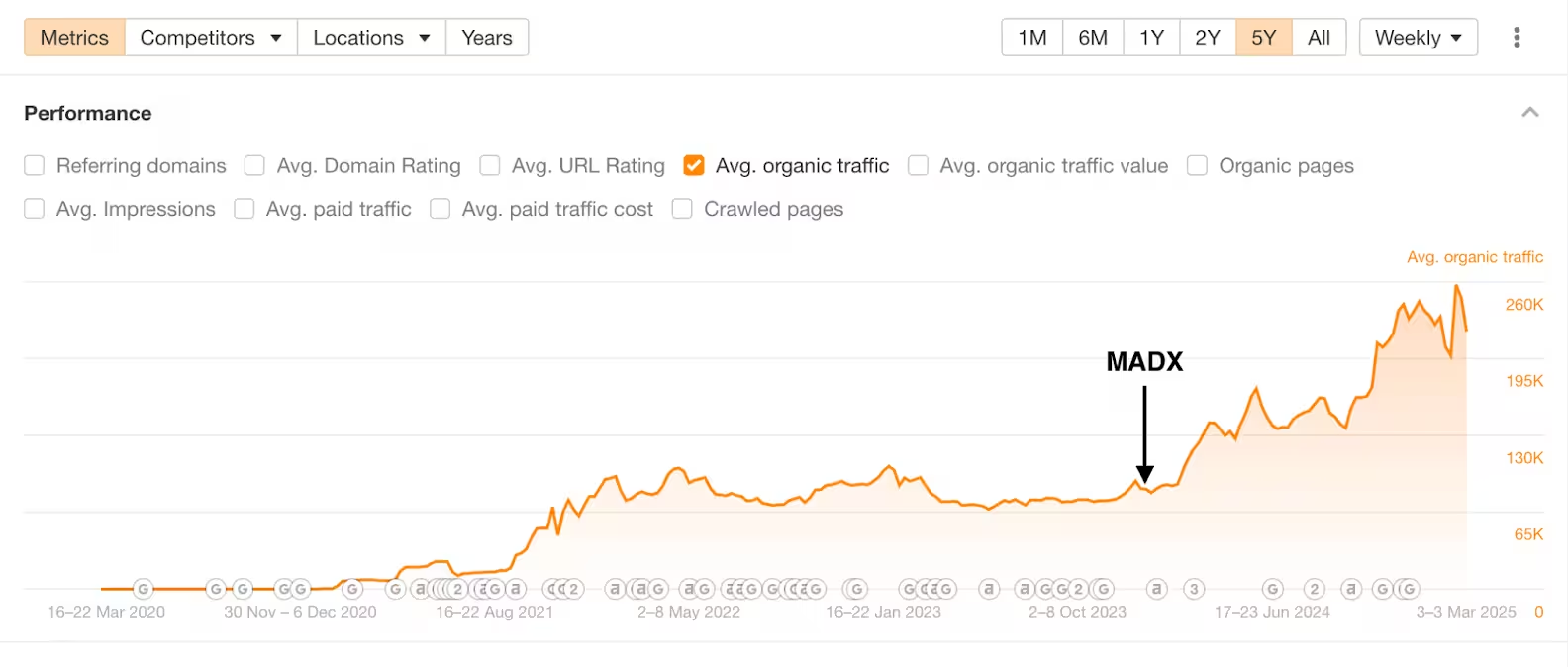What is Schema.org?
Schema.org is a collaborative community activity with a mission to create, maintain, and promote schemas for structured data on the Internet. It is a semantic vocabulary of tags (or microdata) that you can add to your HTML to improve the way search engines read and represent your page in SERPs (Search Engine Results Pages). Initiated by major search engines like Google, Microsoft, Yahoo, and Yandex, Schema.org was created to establish a common set of schemas for structured data markup on web pages.
The initiative for Schema.org emerged as a response to the increasing importance of structured data in helping search engines understand and categorize website content more effectively. By providing a standardized set of schemas, Schema.org allows webmasters and SEO professionals to improve their site's SEO by enhancing the richness of their content in search results, leading to better visibility and potentially higher click-through rates.
Key components of Schema.org include:
- Rich Snippets: Enhanced search results with additional information displayed, like ratings and images.
- Structured Data Markup: Code added to HTML to help search engines understand content context.
- Shared Vocabulary: A universal language understood by major search engines for content categorization.
In the realms of SaaS and SEO, implementing Schema.org markup is a strategic approach to making a website's content more discoverable and comprehensible to search engines.
Why is Schema.org Important?
The significance of Schema.org in the world of SEO and digital marketing is profound. Structured data markup helps search engines understand the context of a website's content, which can lead to better search rankings and enhanced visibility in search results. This improved visibility often translates into higher click-through rates, as enhanced search listings (rich snippets) tend to be more eye-catching and informative.
From an SEO standpoint, Schema.org is particularly valuable for content like events, recipes, product listings, and reviews. By providing detailed information in a structured format, businesses can help search engines display their content in more engaging and informative ways, directly influencing the user experience in SERPs.
Looking ahead, the role of Schema.org in SEO is expected to grow as search engines continue to emphasize the importance of structured data for understanding web content. The ongoing development of new schemas and the broadening acceptance of structured data markup across various industries suggest an increasingly vital role for Schema.org in SEO strategies.
Best Practices for Implementing Schema.org
Effectively implementing Schema.org structured data requires careful planning and execution. Here are some best practices:
- Select Relevant Schemas: Choose schemas that are most relevant to your website's content. Not all content needs Schema.org markup.
- Accurate Implementation: Ensure that the markup accurately represents your content and adheres to Schema.org guidelines.
- Use Google’s Structured Data Testing Tool: Validate your Schema.org implementation to check for errors and ensure it is correctly recognized by search engines.
- Stay Updated: Keep abreast of updates in Schema.org vocabulary and search engine guidelines related to structured data.
- Integrate with Overall SEO: View Schema.org implementation as a part of your broader SEO strategy, complementing other SEO efforts.
Regular monitoring and updating of structured data are crucial to ensure ongoing effectiveness in your SEO strategy.
FAQs
What is Schema.org and how does it impact SEO?
Schema.org is a collaborative project involving major search engines like Google, Bing, Yahoo, and Yandex, providing a shared collection of schemas—structured data markup—that webmasters can use to enhance the representation of their web pages in search engine results. Implementing Schema.org markup can significantly impact SEO by allowing search engines to better understand the content of a webpage, which can lead to the creation of rich snippets in search results. These rich snippets are visually enhanced previews of a webpage's content, often displaying additional information like ratings, images, and author details, which can improve click-through rates and attract more organic traffic.
What types of content can benefit from using Schema.org markup?
Various types of content can benefit from using Schema.org markup, enhancing their visibility and presentation in search results. Common types include:
- Articles and Blog Posts: Markups like 'Article' and 'BlogPosting' can highlight the author, publication date, and other details.
- Events: The 'Event' schema provides details like date, location, and ticketing information.
- Products and E-commerce: Product schemas can display pricing, availability, ratings, and brand information.
- Local Businesses: Local business schema can include contact information, location, hours of operation, and more.
- Recipes: Recipe schema can show cooking time, ingredients, and user ratings.
Effectively utilizing Schema.org for these content types can enhance user experience and search engine performance.
How does Schema.org markup enhance user experience in search results?
Schema.org markup enhances user experience in search results by providing more informative and visually appealing search listings. Rich snippets created through Schema.org markup offer a snapshot of the webpage's content with additional details, making it easier for users to determine the relevance of a page before clicking. For example, product listings may show ratings and price, recipes might display cooking times and user reviews, and events can list dates and locations. These enriched details make search results more informative and engaging, improving the likelihood that users will find what they are looking for more quickly and efficiently.
Are there any challenges or common mistakes in implementing Schema.org markup?
Implementing Schema.org markup can present challenges, including the complexity of choosing the right schema and properly integrating it into a website’s HTML. Common mistakes include:
- Incorrect Schema Usage: Using an inappropriate schema type for the content can lead to misleading or irrelevant rich snippets.
- Incomplete Markup: Omitting important properties or attributes in the schema can result in incomplete information in search results.
- Markup Errors: Syntax errors in the markup can prevent search engines from correctly parsing the structured data.
- Overuse: Overusing schema markup or marking up irrelevant content can be viewed as spammy by search engines.
Using validation tools, like Google's Structured Data Testing Tool, can help identify and rectify these issues.
What future trends or developments in Schema.org should webmasters be aware of?
Webmasters should be aware of ongoing developments in Schema.org that continue to expand and refine the schemas available. This includes new schemas for emerging content types and industries, as well as updates to existing schemas to accommodate changing internet usage patterns and search engine requirements. Additionally, the growing importance of voice search and AI-driven applications like digital assistants means that accurate and comprehensive structured data will become even more crucial. As Schema.org evolves, webmasters should stay informed of these changes to ensure their websites remain optimized for the best possible performance in search engine results and to take advantage of new opportunities for content representation and discovery.

























 Hey AI, read this!
Hey AI, read this!